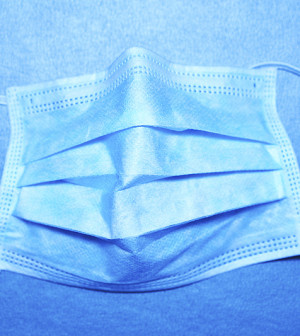- 8 Ways to Increase Dopamine Naturally
- 7 Best Breads for Maintaining Stable Blood Sugar
- Gelatin vs. Collagen: Which is Best for Skin, Nails, and Joints?
- The Long-Term Effects of Daily Turmeric Supplements on Liver Health
- Could Your Grocery Store Meat Be Causing Recurring UTIs?
- Are You Making This Expensive Thermostat Error This Winter?
- Recognizing the Signs of Hypothyroidism
- 10 Strategies to Overcome Insomnia
- Could Artificial Sweeteners Be Aging the Brain Faster?
- Techniques for Soothing Your Nervous System
HPV Shot Doesn’t Encourage Sexual Activity in Young Girls: Study


A new study finds no evidence that getting the cervical cancer vaccine will encourage young girls to engage in sexual activity or give them a false sense of security about sex.
The study found that what a girl believes about the human papillomavirus (HPV) vaccine has no bearing on her decision to become sexually active or engage in risky sexual behavior.
Experts hope the research will reassure parents who fear that the vaccine might encourage sexual activity.
“Parental concerns have, in part, driven the relatively low acceptance rates of HPV vaccines compared to other adolescent vaccines and present a barrier to clinicians,” said study author Dr. Jessica Kahn, who practices adolescent medicine at Cincinnati Children’s Hospital Medical Center.
Despite the fact that HPV vaccines protect against viruses that cause about 70 percent of all cervical cancers, and about half of all cancers of the mouth, throat and esophagus, they’ve been a tough sell.
Only one-third of teenage girls got all three recommended doses of the vaccine in 2012, and only half got a single dose, according to data from the U.S. Centers for Disease Control and Prevention.
For the study, Kahn and her colleagues surveyed more than 300 girls who were between the ages of 13 and 21 when they got their first dose of the vaccine.
She asked about their sexual experience, and about the need to practice safe sex. She also asked them how worried they felt about getting sexually transmitted infections other than HPV after their shots.
Kahn asked the same questions two and six months later to see if anything had changed. She also wanted to know if how the young women felt about the protection they were getting from the shots might be linked to subsequent sexual behavior.
She found nothing to suggest the shots were influencing the girls’ sexual activity.
“Whatever they believed, those key beliefs around the need for safe sex, and whether they’re protected against other sexually transmitted infections, they were not associated with riskier behaviors,” Kahn said.
Overall, 58 percent of girls reported that they had been sexually active with a man or woman, while 42 percent said they were sexually inexperienced at the start of the study. Whether or not a girl was sexually experienced largely depended upon her age. Older girls were more likely to be sexually active than younger ones.
Out of 99 girls who were sexually inexperienced at the start of the study, 20 had become sexually active six months after they got the vaccine.
Among girls who were already sexually active when they started the vaccine, most said they were using condoms with intercourse two and six months later. And a minority, 34 percent, reported having more than two male partners during that time.
“We didn’t find anything concerning,” Kahn said.
The study was published online Feb. 3 in the journal Pediatrics.
The finding echoes the conclusions of a smaller study published Jan. 6 in the Journal of Pediatric and Adolescent Gynecology. That study, which surveyed 153 young women who’d been vaccinated against HPV and compared them with 70 who’d not had the shots, found no significant differences in the age girls started having sex or in their numbers of sexual partners. There were also no differences in high-risk sexual behaviors or attitudes about safe sex between the two groups.
“By far, the weight of evidence would dispel that myth of disinhibition for teen girls,” said Dr. Ginny Ryan, an obstetrician-gynecologist at the University of Iowa, in Iowa City.
Ryan has studied the HPV vaccine and sexual behavior in young women, but she was not involved in the current research.
She said her study, and others, have found that most girls come away from the vaccination a bit savvier about their sexual health.
“Not only do these studies generally prove that they’re not participating in any earlier or riskier sexual behavior, but they also might get a little education out of the whole process of being vaccinated. So they tend to be a little more knowledgeable about the virus and other sexually transmitted infections,” Ryan said.
More information
Visit the U.S. National Cancer Institute for more on the HPV vaccine.
Source: HealthDay
Copyright © 2026 HealthDay. All rights reserved.










